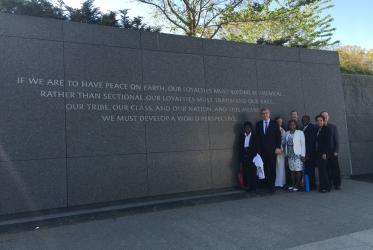Displaying 161 - 180 of 225
04 August 2016
WCC condemns escalating racial violence in the USA
09 July 2016
New Executive Committee members elected in Trondheim
28 June 2016
USA Racial Justice Accompaniment Visit
18 April 2016
International affairs facilitator reflects on pilgrimage
31 March 2016
"I hit the ground running": Katalina Tahaafe-Williams
16 February 2016
Symposium focuses on religion, violence, extremism
04 February 2016










